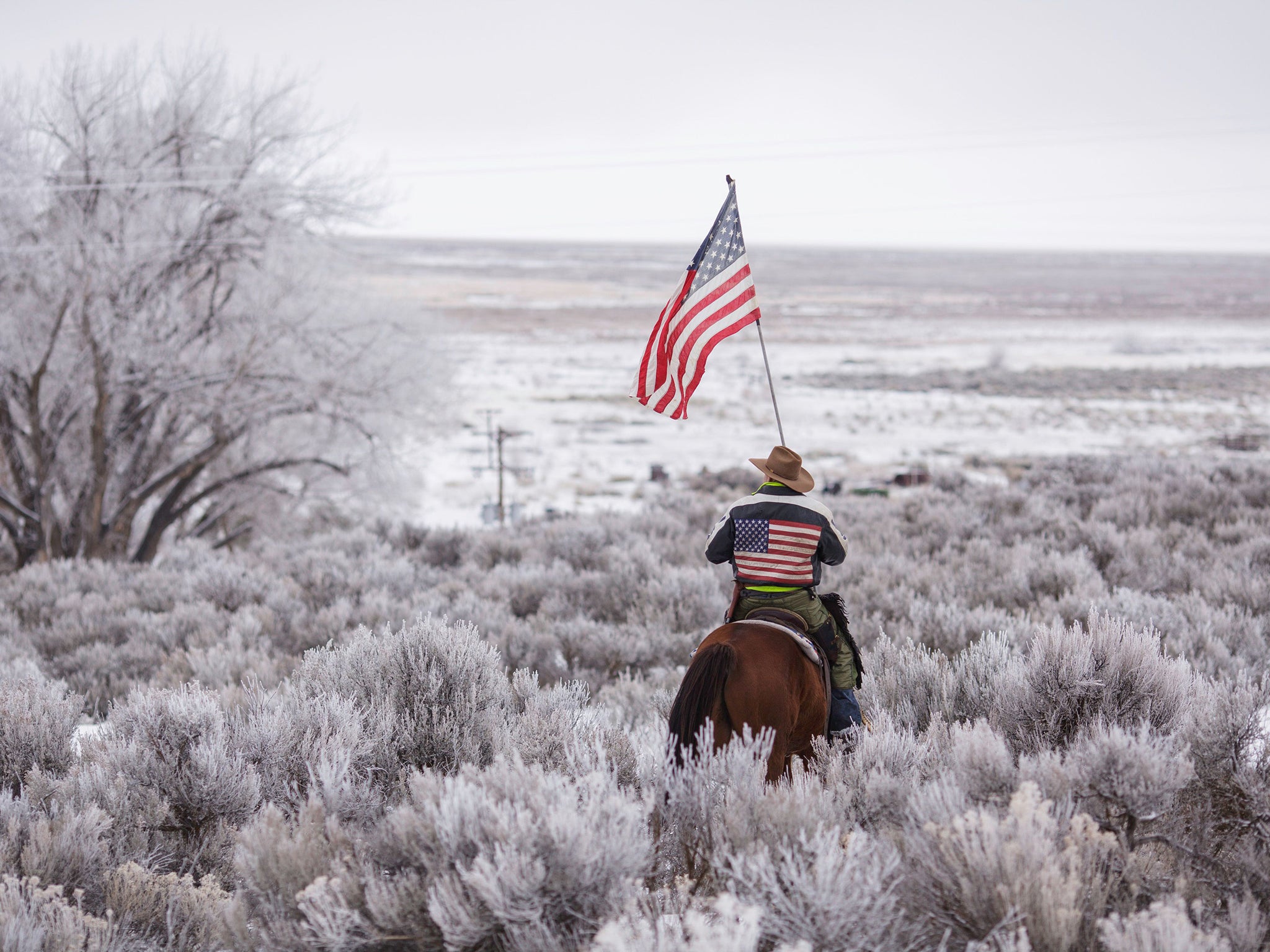Oregon occupation inspires a new crop of political candidates
The Bundy Bunch message appears to have resonated in Harney County, where there are more local primary candidates than at any election in recent history

There’s no disguising election season in Burns, where the roads are lined with lawn signs and the pick-up trucks resound with conservative talk radio. But in eastern Oregon, where many distrust the federal government, locals are disappointed and dispassionate about their remaining presidential options. Instead, it’s down-ballot races that have captured their interest.
This year, there are more local primary candidates than at any election in recent Harney County history. Seven people are running for a vacant county commissioner’s seat, four for the open post of county judge. Another is challenging the incumbent county sheriff for his job. And most of these rookie political hopefuls appear to have been inspired by exactly the same thing.

In January, Burns achieved sudden notoriety when a group of armed anti-government activists, led by Nevada rancher Ammon Bundy, seized the headquarters of the nearby Malheur National Wildlife Refuge, part of the long-running conflict between ranchers and the US government over the expansion and management of protected federal lands in the West.
The occupation arose from a protest in support of Dwight Hammond and his son Stephen, Burns ranchers whose property abuts the Malheur refuge, and whose antagonistic relationship with the government had culminated in a conviction for arson, after they set fires that spread onto the federally managed wilderness.
Law enforcement agencies, far-right militias and the media all descended on the small, remote town. Mr Bundy and his fellow occupiers, none of whom were from Harney County, called on fellow “patriots” from across the US to join them at their frigid redoubt, and vowed to return the refuge to the local community, to do with the land as they saw fit.
The 41-day occupation ended with one protester, Robert “LaVoy” Finicum, shot dead by the FBI, and with Mr Bundy and more than a dozen of his compatriots behind bars. But while their actions proved unsuccessful, their cause appears to have resonated. “I liked their message, just not their method,” said Butch Delange, whose son is the police chief in neighbouring Hines.
Locals resented the occupiers and the circus they brought with them, explained Mr Delange, but they also resented the ineffectual response of their own officials. “People don’t think the sheriff or the judge or the county commissioners did everything that they could have done during the occupation,” he said.
Judge Steve Grasty, one of the loudest critics of the occupation, plans to retire at the end of 2016. Last week, his own opponents filed a recall petition in hopes of forcing him out before his term ends. Sheriff Dave Ward, who became the public face of law enforcement during the occupation, is being challenged for his job by Alan Johnson, a retired state police officer.
“I have nothing against our sheriff,” said Steve Riley, proprietor of the Moonrise bookstore in Burns, who is backing Mr Johnson. “But he was overwhelmed by the occupation. He just folded to the powers that be. I don’t think he had the gumption to stand up to them. The sheriff ought to be the supreme law enforcement official in the county.”
Harney County residents have never been formally polled on their opinions of the occupation, but it is clear that some candidates – and voters – share several views with the occupiers. Tom Schaefer, who is running for Mr Grasty’s position, regularly references the US Constitution in his speeches, and appears to support a roll-back of federal influence in local affairs.
“I think we need to push back with every opportunity and every bit of leverage that we have against these federal agencies that are strangling us,” Mr Schaefer recently told Oregon Public Broadcasting. He is one of multiple 2016 candidates across Oregon who appear sympathetic to the anti-government “patriot” movement.
One of the consensus beliefs of that movement, which is made up of radical groups including the Oath Keepers militia, is county supremacy: the idea that county sheriffs should have the power to choose which federal laws to enforce, and that public lands should be controlled by local, not federal government.
Kirby Letham, a Burns real estate agent who regularly works with ranchers, said the occupation had at least forced such issues into the open. “Those things are now being talked about more clearly and freely,” he said. “There’s still some underlying tension in the community. Politics is always emotional. But for the most part, the people running for office have been very polite.”
Which is more than can be said for the presidential candidates.
Join our commenting forum
Join thought-provoking conversations, follow other Independent readers and see their replies
Comments